A broody hen can save you so much time and energy! If you are a busy family, a broody hen is a perfect, minimal effort way to help you grow your flock.
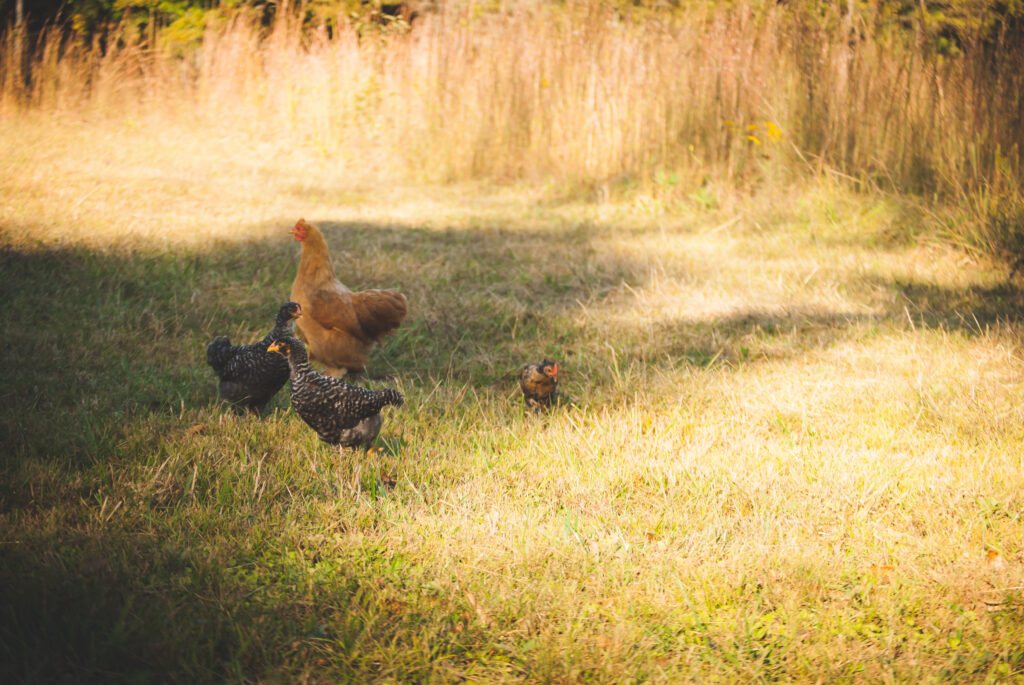
Most people are not capable of homesteading full time. While it is definitely a dream most homesteaders strive for, and income outside the home is often necessary. If you are dreaming of raising more of your own food, and becoming more self sufficient in the midst of your busy life, there are ways this is achievable. A good broody hen is one of the ways to grow your flock, and your food supply with very little effort. Here are the top five reasons to love a Broody Hens:
Growing Your Flock
Laying hens are most productive the first two years of their life. After this period, their egg production will slowly decline. If you are keeping chickens for eggs, you will need to add younger chickens to your flock periodically. If you have a rooster in your flock, most likely your eggs are fertilized. A good broody hen will add new chicks to your flock yearly. This is a great way to keep egg production steady. *Depending on how many roosters you have, a new rooster may need to be added periodically to keep diverse genetics*
You can add fertilized eggs from multiple hens under your broody. She will hatch the eggs no matter who they came from. My little bantam cochin hatches full size eggs like a champ.
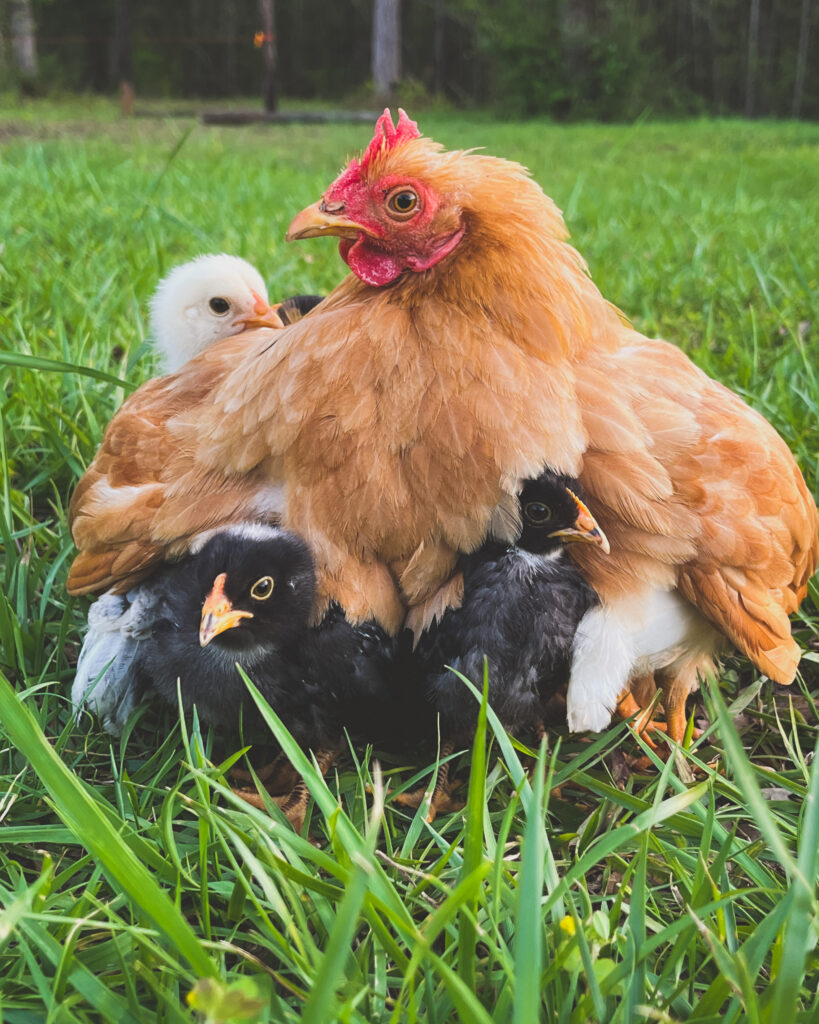
FAQs
What is a broody hen?
A broody hen is a hen that wants to hatch eggs. Her biology tells her that she needs to sit. Her temperature will naturally increase, and she will decrease the amount she eats and drinks. All of this in order to sit on eggs, and keep them warm for around twenty-one days.
Do all hens go broody?
No. The broody characteristic isn’t ideal for egg laying, so it has been decreased by selective breeding. Most hens will not go broody. However, there are certain breeds that are most likely to do it. This is a great article from McMurray Hatchery on breeds that are more prone to going broody.
How can I tell if my hen is broody?
A broody hen will sit on her eggs relentlessly day and night. If you take the eggs from underneath her she will lay or find more to sit on. If your hens are allowed to free-range, the broody may disappear to a hidden area while sitting on eggs. There are several other ways to tell if your hen is broody. Some hens will pluck the feathers from underneath their body so that their skin touches the eggs directly keeping them warm. A broody hen also has a characteristic “broody poop”. The hen will not get off her eggs often, so when she poops it’s very large and odorous.
Along with those signs, you may hear the hen make grunting noises when approached by you or other hens. She is warning against anyone messing with her and her eggs.
Why is a broody hen viewed as a negative trait by some?
When a hen goes broody, she long longer lays eggs. A broody hen can be very persistent, so she will stop laying eggs for a long period of time. Since many people keep chickens for the purpose of egg production, a broody hen is unproductive and expensive to feed.
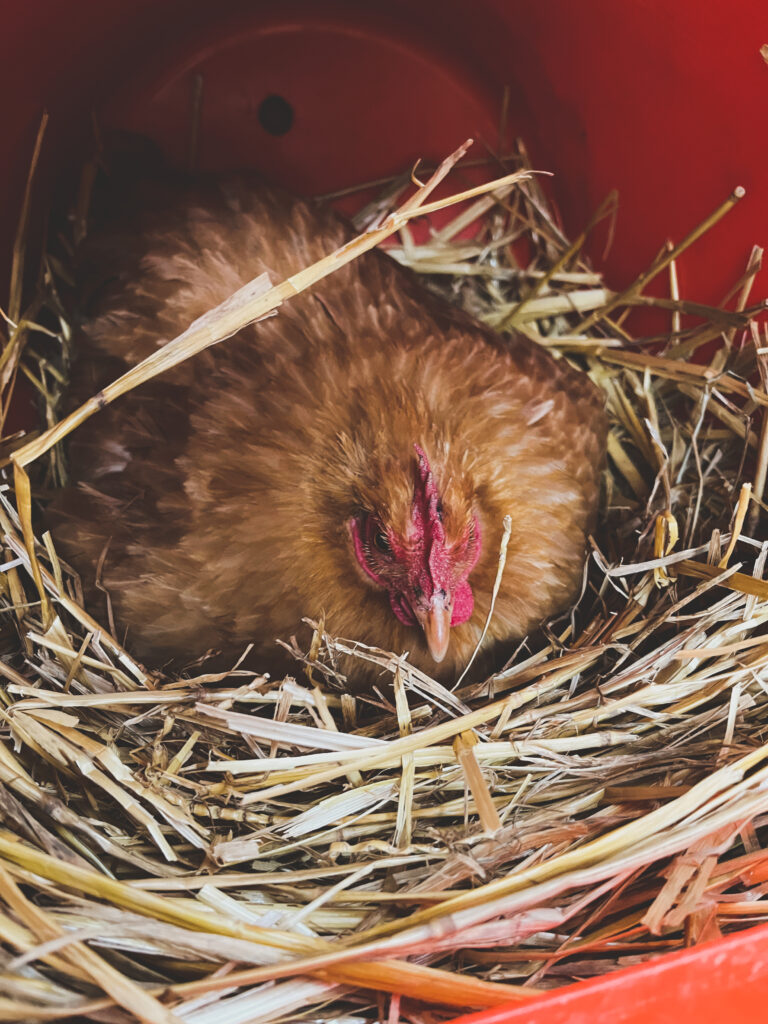
Personally, I don’t view broodiness as a negative trait. A broody hen can benefit your home flock in so many different ways. Here are a few reasons I love a broody hen.
1. No Need for an Incubator and Brooder with a Broody Hen
An incubator is needed when hatching eggs without a hen. Nice incubators can be very expensive. However the hen will keep the eggs at the perfect temperature and humidity making for a higher hatch rate.
A brooder is necessary when raising day old chicks from a hatchery of your local feed store. The chicks need to be kept at consistent temperature to thrive. The brooder also serves as protection for the chicks. The hen will keep the chicks warm, and protected without any help. She will spread her wings covering the chicks to keep them warm and hidden.
This is extremely helpful if you’re raising chicks with a body schedule. You don’t have to worry about maintaining the brooder or raising the chicks. There is no mess to clean in your garage or barn, no changing of the bedding, and no dust.
2. Easier Integration into the Existing Flock
Bringing new chicks into an established flocks is tricky. It’s best done gradually by letting the flock “look but not touch” the chicks for a while until everyone gets to know each other. Also, the chicks should be large enough to fend for themselves prior to integration. This is very time consuming, and requires a lot of supervision from you to ensure everyone gets along. However, a mama hen will do all of the work for you. Since chickens naturally have a pecking order, the hen will fend off any other members of the flock that may threaten the new chicks. The new pecking order is easier to establish with the help of the mama hen.
you should separate the mama hen and chicks form the rest of the flock for a couple of weeks after hatching. This will give her time to recover from all of that brooding, and also provide safety for her chicks from the others. A hen can become very distressed when she perceives that her chicks are in danger.
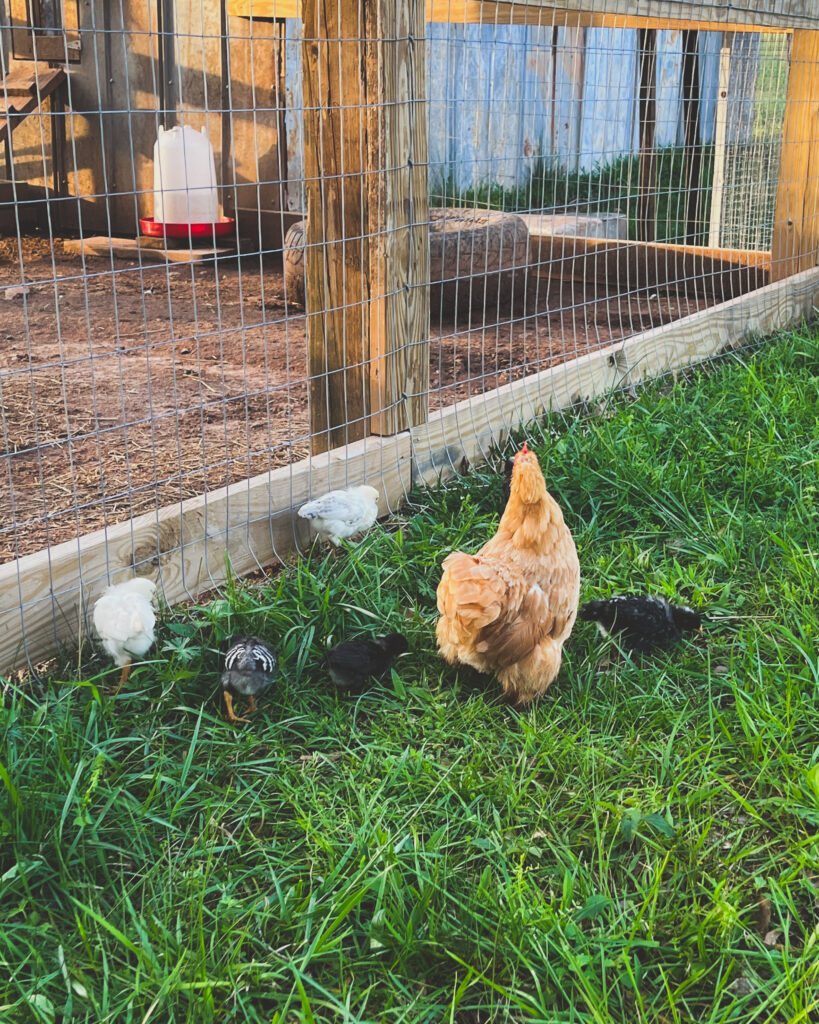
3. A Well Adapted Chicken
A mother hen will teach the chicks all about being a chicken. This sounds simple enough, but chicks raised by a hen have a lot of good characteristics. They are able to start searching for food very early on. The mother hen will show the chicks which bugs and plants are ok to eat, and which ones are not. They will instinctively recognize the different clucking sounds from the other chickens making it easier form them to avoid predators or locate food. The chicks will also understand the natural pecking order of the flock, and how to interact with other flock members. All around, they are better behaving chicken, well adapted to life within the flock. This will save you a lot of time spent supervising new chicks to ensure they are safe.
It has been my experience that chickens raised by hens are not as friendly as those raised by hand in a brooder. You should really take time to interact with the chicks to establish trust with them.
4. Broody Hens Make Broody Hens
A hen that has been raised by another hen is more likely to be broody than one raised in an incubator and brooder. Unfortunately the broody trait has been bred out of hens over the year. There’s something about being raised by a mother hen that might trigger that trait in the chicks she raises. If you already have breeds in your flock that are likely to be broody, try letting a mother hen hatch those eggs. You could possibly end up with more broody traits in future generations.
This will save you money and time as the cycle is likely to be continued for many years to come. You want to ensure the broody trait continues.
5. A Broody Hen is The Natural Way
A broody hen raising chicks is the way nature is intended to be. There can be a tremendous amount of joy in watching a hen sit on eggs, and raise her own young. Perhaps you are wanting to keep chickens to reflect back on an old fashioned way of life. Sometimes in a crazy world, the witnessing of animals in their natural state is peaceful. It doesn’t get much more vintage than the cycle of mother hen, eggs, and chicks.
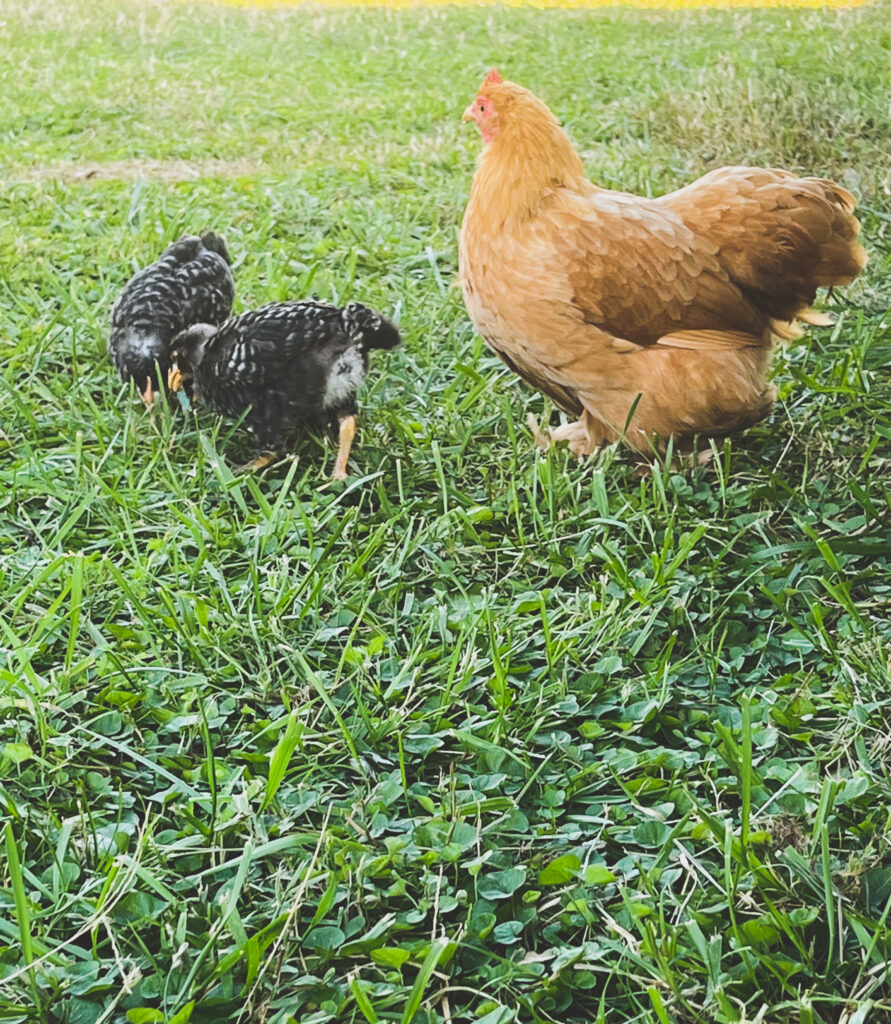
[…] can control when your chicks will hatch. I love having a broody mother hen hatch eggs for me, but they don’t always have the best timing. I sell eggs at the farmer’s […]